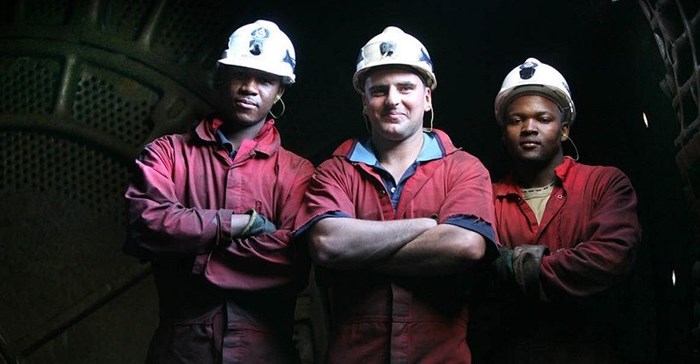
There are lots of debates to be had about the Broad-based Black Socio-Economic Empowerment Charter, but the one that's missing concerns employment levels. According to the Chamber of Mines, black economic empowerment (BEE) transactions since 2000 amount to about R205bn in 2014 terms.
The value of meaningful economic value transfer between 2000 and 2014 was about R159bn. "I'm not aware of any other sector achieving a comparable level," says chamber CE Roger Baxter.
The chamber keeps very specific statistics on employment. In 2007, 495,474 people were employed in the industry and 455,109 in 2017 - about a 10% decline. At its height in 1987, the industry employed 763,319 people. That is a frightening decline.
But the issue doesn't seem to have any resonance, political or otherwise. I cannot for the life of me understand why any trade union would support the charter. Outside of equity considerations, employment is mentioned only once.
In the "objectives" section, "advancing employment" is mentioned in passing.
In its long statement on the issue, the National Union of Mineworkers fell over itself to welcome the charter and to emphasise it was intensely consulted. It felt obliged to put on record that it had "six or more formal consultations" with the Department of Mineral Resources since the April 2016 gazetting of the draft charter.
In those intense consultations, the union obviously didn't worry too much about jobs. It did say it was "disappointed" that the code designated only 8% of the new 30% slice of BEE ownership in mining companies to employees and communities, before spending a long time talking about beneficiation and procurement and human resource development.
But on the crucial question of whether the charter would result in more miners " radio silence. Reading the statement, you are struck by the sense that the union seems to look at mining almost from the perspective of shareholders rather than employees.
Employee stock ownership plans, once considered by trade unions to be a despicable thin end of the wedge on the road to managerial co-option, are not just celebrated - the union took the opportunity to "name and shame" mining companies without such plans.
Looking at employment year by year, the correlation between employment levels and BEE in the industry is weak. The big dip in employment happened in the 1980s and employment levels have been more or less static since the new mining regime was introduced in the late 1990s. But that in itself is noteworthy. The industry globally went through an almighty boom in the 2000s, but mining employment in SA rose only slightly.
Since 2010, it's been dropping, first because of the international recession and from there, the problems have been self-inflicted: a series of new ministers, masses of policy changes, huge increases in electricity prices and lengthy labour unrest.
It's not totally true that no effort is being made; the codes have local procurement requirements that, presumably, are designed to increase local jobs. But there is no requirement, for example, that in exchange for this glorious gift granted by national fiat BEE partners have any responsibility to spend it expanding the industry.
The code does not limit BEE shareholders who are exiting with their bonanzas in any way, and BEE shareholders can sell down 49% of their stake if they intend to "develop another asset", it says. Notably, what it does not say is "developing another mining asset".
I sense a deep pessimism when reading the code. There seems to be an implicit acceptance the mining industry should be milked quickly before it dies, which by the way is totally untrue. That mirrors some of the pessimistic thinking by what we might call the Gupta faction, who feel the right strategy is to cast caution (and legality) to the wind and grab anything they can get hold of before their ship goes down.
This is a terrible blight and one of the most dreadful hallmarks of left-wing economics, which is instilled with the apocalyptic yearning for the great revolution to come. "Winter is coming," the television show Game of Thrones warns ominously.
But actually, even in these dark days, it's kind of warm outside.

For more than two decades, I-Net Bridge has been one of South Africa’s preferred electronic providers of innovative solutions, data of the highest calibre, reliable platforms and excellent supporting systems. Our products include workstations, web applications and data feeds packaged with in-depth news and powerful analytical tools empowering clients to make meaningful decisions.
We pride ourselves on our wide variety of in-house skills, encompassing multiple platforms and applications. These skills enable us to not only function as a first class facility, but also design, implement and support all our client needs at a level that confirms I-Net Bridge a leader in its field.
Go to: http://www.inet.co.za